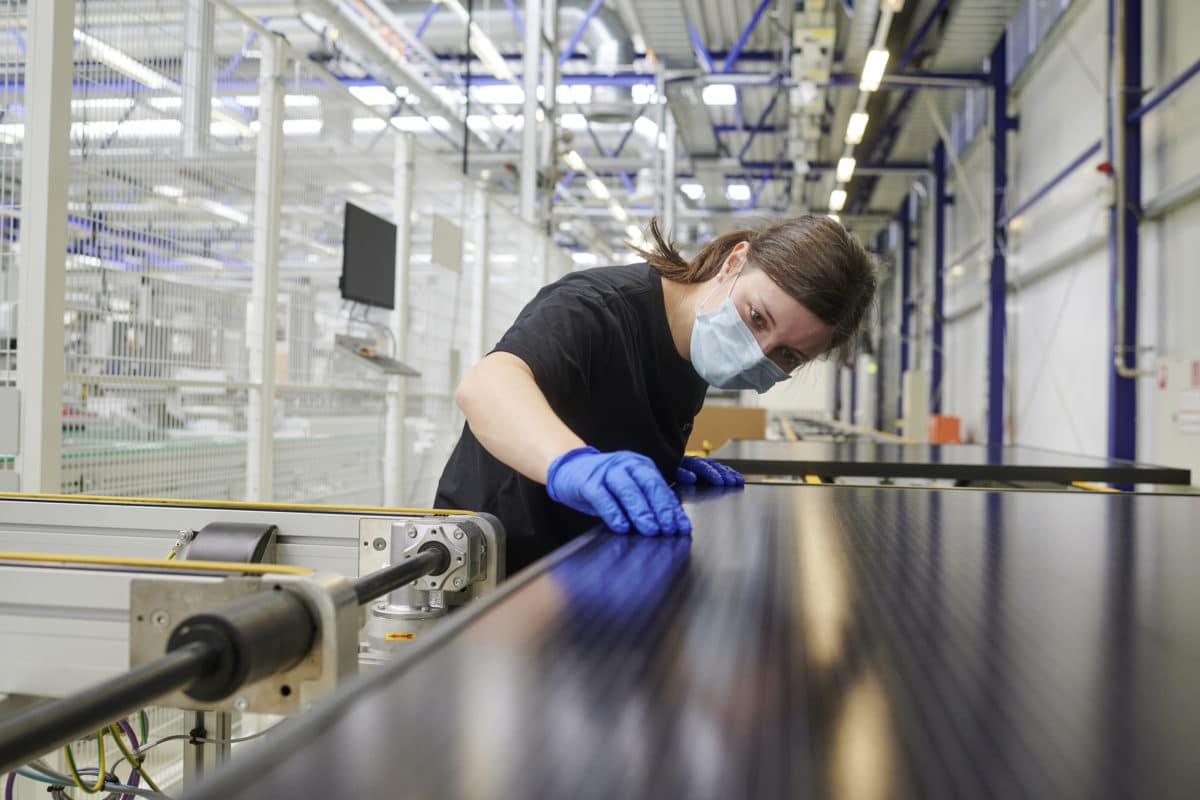From pv magazine Germany
Switzerland-based solar module manufacturer Meyer Burger Technology AG has unveiled a high-performance heterojunction half-cell solar module, which it claims will provide an additional yield of up to 20% compared to conventional PERC modules.
The module features efficiency up to 21.8% and weighs just under 20kg. “We achieve these industry-leading energy yields and up to 400 W nominal power per module without having to make the modules bigger and bigger like our competitors”, said the company's managing director, Moritz Borgmann, adding that the new product is significantly lighter than standard panels.
The Meyer Burger White panel measures 1767 x 1041 x 35 mm and weighs 19.7 kg. It is available with wattages ranging from 380 to 400 W and efficiencies between 20.7% and 21.7%. Its temperature coefficient is -0.23% per degree Celsius and the maximum system voltage is 1,000 V. It is made with 120 monocrystalline heterojunction half-cells and 3.2mm antireflective glass.
The Meyer Burger Black product has the same weight and dimensions as the white module, as well as its components and electric performance data. It is available in five versions with power ratings between 375 and 395 W and efficiency ranging from 20.4% to 21.5%.
As for the glass-glass version; the module weighs 24.4 kg and measures 1722 x 1041 x 35 mm, its power rating ranges between 370 and 390 W, efficiency up to 21.8%, and the maximum system voltage is 1,500 V.
The manufacturer also explained that, due to its bifaciality, it can achieve a combined power of more than 430 W under standard measurement conditions. Bifaciality is commonly defined as the ratio of the output measured from the rear-side of a panel over the output measured from its front side. According to Meyer Burger, the bifaciality of its glass-glass module is around 90%.
The manufacturer also said that, despite the half-cell architecture, the front side of the new products has a homogeneous “full-cell” look. They are being manufactured with the company's Smartwire technology, which Meyer Burger said prevents microcracks.
The white and black products come with a 25-year linear power output guarantee and a 25-year product guarantee. Their average annual degradation is 0.25% for 30 years and 2% in the first year of its lifetime. The output warranty for the glass-glass panels is 30 years and at least 93% of initial performance is guaranteed.
For the module distribution, Meyer Burger has signed contracts with well-known partners such as Baywa re, IBC Solar, KdiSolar, Krannich Solar, Memodo, Solarmarkt, Solen Energy Europe, and Sonepar Germany. This means that the panel manufacturer is able to cover markets such as Germany, Switzerland, Austria, the Benelux region, Italy, France, Poland, Great Britain, the Nordic countries, and the USA. Further sales partnerships will follow in the coming weeks.
Meyer Burger operates a heterojunction cell production facility in Bitterfeld-Wolfen and a highly automated module factory in Freiberg, Germany. Production at both sites is expected to begin by the end of May. The first modules could then be delivered to customers from July. The initial annual capacity of both factories is 400 MW each, which the manufacturer wants to increase to 5 GW by 2026.
This content is protected by copyright and may not be reused. If you want to cooperate with us and would like to reuse some of our content, please contact: editors@pv-magazine.com.





Maximum system voltage of 1000V for such a high efficiency module is indeed a drawback requiring higher cost of BOS. 1500V should be norm now for any new and high tech products.